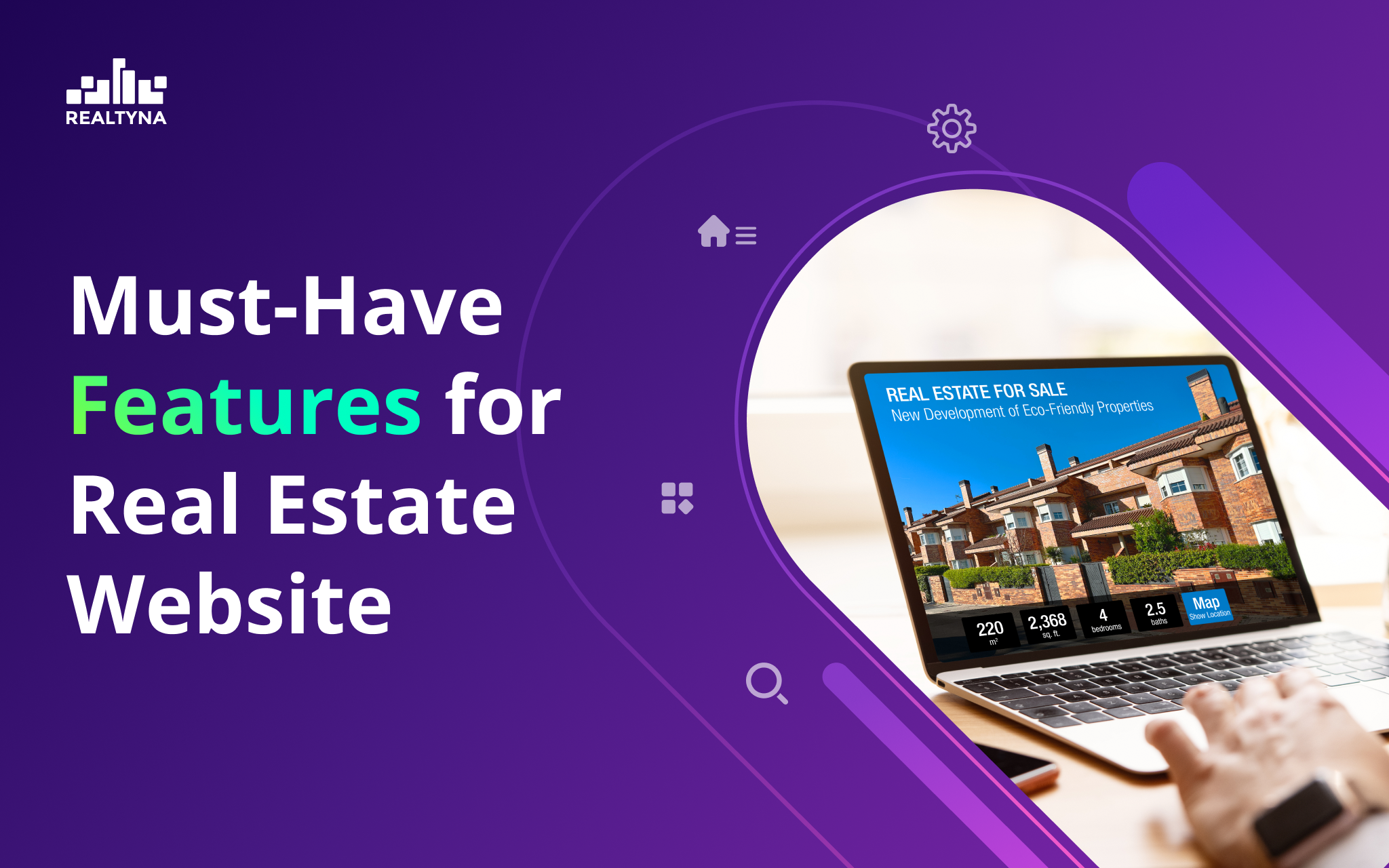
Must-Have Features for Real Estate Website
No one wants to have an incomplete website, a website that lacks something. a website that is not as perfect as it should be,
But what are the metrics? or better say, what are the must-have features you should have on your website?
There are several aspects that you need to have features on, the most important ones are these:
- Property Listings and Search
- Marketing Tools & Calculators
- Engaging Content and Blogs
I’ll show you which features your website should have on each one of these aspects, so let’s dive in:
Property Listings and Search
- A robust listings database is crucial for any real estate website. Agents and brokers want a one-stop shop where clients can search all available properties that meet their needs. Include listings from the local MLS as well as your agency’s private listings. The more comprehensive the database, the better. Clients won’t have to waste time visiting multiple sites to find options.
- Enable visitors to filter and sort listings by key attributes like price, number of bedrooms, location, and amenities. Advanced search functionality allows buyers to narrow down to exactly what they’re looking for, such as a three-bedroom home under $350,000 within 10 miles of downtown. When listings match a search, display photos, details like square footage and year built, and a map showing the location. The easier you make it for visitors to explore listings that interest them, the more likely they are to contact you to schedule a showing.
- To provide the best user experience, listings should be updated frequently as properties become available or go under contract. Out-of-date information frustrates clients and damages your credibility and reputation. It’s also a good idea to let visitors save their favorite listings to review later. Some visitors may not be ready to buy or sell right away but want to keep an eye on the market. Make it simple for them to come back to your site when the time is right.
- A comprehensive, easy-to-search database of the latest property listings is essential for any real estate website. Combined with helpful tools like saved searches, it allows agents and brokers to build ongoing relationships with clients and be the first point of contact when they’re ready to make a move.
Marketing Tools & Calculators

- Having customized lead capture forms on your site makes it easy for visitors to contact you about listings or share details about their real estate needs. You’ll want options for buyer consultation requests, seller valuation requests, and general contact forms. These forms should feed directly into your CRM or email marketing system.
- Set up automated drip campaigns through your website to stay in touch with leads and build rapport over time. For example, send an introductory email to new leads, then follow up a week later to reiterate your services. Include links to relevant listings or market updates to show your industry expertise. Consistent and valuable communication will keep you top of mind.
- Many buyers want to know the property taxes they’ll owe each year. A tax estimator tool allows agents to enter details about a listing like sale price, tax rate, and any exemptions to provide an estimate of the annual tax bill. This helps buyers budget properly and avoids surprises after closing.
- For those with children, school information is an important factor when house hunting. The website should provide a way for agents to search for listings by school district, see school ratings and test scores, and link to the official school website for more details. (Check out school add-on)
- Any reputable real estate website platform should provide analytics and reporting to track how people are interacting with and converting on your site. Monitor metrics like page views, time on site, and conversion rates. See which pages and content are performing the best so you can optimize and improve. Lots of tools out there, check out tools for real estate SEO to familiarize yourself with some.
Engaging Content and Blogs
- When you get an especially interesting or unique new listing, feature it prominently on your site. Include professional photos, a video tour if possible, and details on what makes this property special. Your enthusiasm for the listing will get visitors excited too.
- If you’re deeply familiar with the neighborhoods you serve, share that knowledge through blog posts on the history, highlights, and hidden gems of each area. Discuss things like the best places to eat, shop, or spend a Saturday morning. This kind of hyper-local content positions you as the expert in your market.
- Blog posts are also an opportunity to demonstrate your professional knowledge and experience. You might write posts on current trends in home design or mortgage rates, explain different types of loans or contracts, or share tips for buying or selling. When visitors see the depth of your understanding, they’ll be more inclined to hire you.
That’s all for now but lots of things should be considered when you establish your website. Maybe these two articles help you through:


Sorry, the comment form is closed at this time.